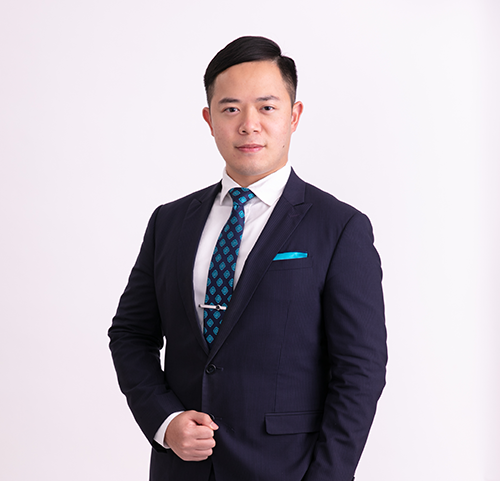| 1. |
As you have studied both Marketing and Law, please state three key major differences between these two fields. |
| |
|
| |
| (i) |
To my surprise, most of the exams that I have taken while I was a marketing student were “closed-book” exams, whereas those at law school were mainly “open-book exams”! |
| (ii) |
In Hong Kong, there is an additional academic hurdle where all law students must overcome before becoming a lawyer, namely going through and passing the highly competitive “PCLL Programme” (i.e. the Postgraduate Certificate in Laws). In contrast, marketing students are far more “luckier” – they can simply enter the workforce on graduation without worrying the need to overcome yet another academic hurdle. |
| (iii) |
In Hong Kong, the curriculum of the undergraduate law programmes among the three law schools (i.e. HKU, CUHK & CityU) are more or less the same because students must complete various core subjects designated by the Hong Kong Bar Association and the Law Society of Hong Kong, before getting admitted into the PCLL Programme. In contrast, it is observed that the curriculum of marketing programmes in Hong Kong can be very different. The core subjects of these programmes vary greatly from institution to institution. |
|
| |
|
| 2. |
If you are recommended to introduce Law to us, please list five key points for understanding the foundation of Law. |
| |
|
| |
| (i) |
The constitutional framework for the legal system in Hong Kong is provided by the Basic Law. |
| (ii) |
The main body of laws in Hong Kong is composed of statutes (e.g. ordinances and regulations) and precedents. |
| (iii) |
The legal profession in Hong Kong is said to be a “split” profession, i.e. dividing into solicitors (事務律師) and barristers (大律師/訟務律師). For those who are interested in learning more about the two professions, you may refer to the following links:
About barristers
About solicitors |
| (iv) |
Law has a jurisdictional feature. In other words, laws in Hong Kong may be different from other jurisdictions, such as those on the Mainland or Macau.However, as Hong Kong is a common law jurisdiction, leading judgments from other common law jurisdictions (such as England and Wales, Australia and Singapore) may sometimes be referred to by the Hong Kong Court. Apart from that, in the process of making law, relevant legislations of other jurisdictions may also be considered and compared. |
| (v) |
Ignorance of the law is no excuse. In other words, there is a general “presumed knowledge of the law”, which is the principle in jurisprudence that one is bound by the law even if one does not know its boundaries. |
|
| |
|
| 3. |
As a solicitor, please state three main areas of practices that you are familiar with. What is the connection between Law and our daily lives? |
| |
|
| |
| (i) |
Wills and probate practices: Like many solicitors, I often help my clients to draft their wills (遺囑), which is the legal document that sets forth their wishes regarding the distribution of their properties and the care of any minor children, among many other things. |
| (ii) |
Construction law practices: I also practise construction law (建築法), which is regarded as a highly specialised area of law that deals with matters relating to building construction, engineering and related fields. It is in essence an amalgam of contract law, commercial law, planning law, employment law, tort law and statutes. Unlike the aforesaid wills and probate practices, the general public may not be familiar with this particular area of law. |
| (iii) |
Dispute resolution: Apart from advising clients on litigation, I also represent clients in alternative dispute resolution (ADR), such as mediation and arbitration. Litigation and ADR are modes of resolving civil disputes in our daily lives. |
|
| |
|
| 4. |
As a solicitor of the High Court, please share three facts we need to know if we have a chance to visit the Court. |
| |
|
| |
| (i) |
Although it might be very tempting to do so, NEVER EVER take photos inside the Court! |
| |
| |
According to section 7 of Summary Offences Ordinance (Cap. 228):-
Any person who takes or attempts to take in any court any photograph, or with a view to publication makes or attempts to make in any court any portrait or sketch, of any person, being a judge of the court or a juror or a witness in or a party to any proceeding before the court, whether civil or criminal; or publishes any photograph, portrait or sketch taken or make in contravention of the foregoing provisions of this section or any reproduction thereof, shall be liable to a fine. |
|
| (ii) |
All criminal cases begin at the Magistrates’ Courts (裁判法院). In particular, Court No.1 (第一庭) is the place where fresh cases are being mentioned (提堂), which is usually the largest court room. |
| (iii) |
In the Magistrates' Courts, the Duty Lawyer Scheme (當值律師計劃) (the Scheme) covers some 300 statutory and common law offences under its Standard List of Offences. Defendants who are charged with an offence under the Standard List of Offences will be provided with legal representation for their first court appearance without any means testing. However if a Defendant wishes to continue having legal representation for subsequent appearance under the Scheme, he or she must go to the Court Liaison Office to do the means test (入息審查). After passing the means test, he or she would be required to pay one fixed handling charge of $610. This is the only charge that any defendant has to pay under the Scheme, no matter how long the trial lasts.
For details, please click here. |
|






